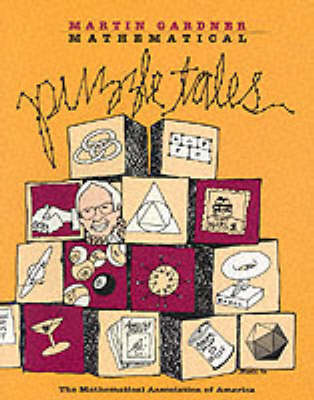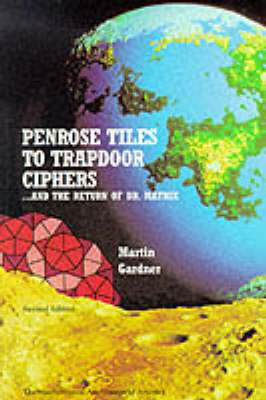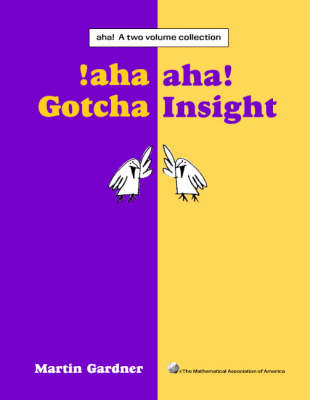Spectrum
6 total works
How do you move two matches - and only two - to new positions, so that the glass is reformed in a different position, with the cherry outside? This is one of those rare puzzles that can be solved at once if you approach is correctly, but intelligent people have been known to struggle with it for 20 minutes. The author provides the solution. The treats in this book range from Moebius bands to coin and card trickery, from finger arithmetic to the post-Ticktacktoe game of Tri-Hex.
The twenty chapters of this book are nicely balanced between all sorts of stimulating ideas, suggested by down-to-earth objects like match sticks and dollar bills as well as by faraway objects like planets and infinite random walks. We learn about ancient devices for arithmetic and about modern explanations of artificial intelligence. There are feasts here for the eyes and hands as well as for the brain.
Martin Gardner is widely known for his writing on recreational mathematics, not least for the myriad problems he has devised over some 25 years for Scientific American. In this book are collected 36 of his best brainteasers. These are not simply cunning puzzles, but serve to illustrate the art of the mathematician as problem solver, and their solution draws on ideas from topology, probability, number theory, logic and beyond. Fully worked answers are given, which in turn lead to additional problems for the reader. For anybody who likes to solve mathematical problems this book will be both entertaining and a challenge.
Here is another collection drawn from Martin Gardner's 'Mathematical Games' column in Scientific American. Each chapter explores a different theme, for example fractals, surreal numbers, the sculptures of Berrocal, tiling the plane, Ramsey theory and code breaking, all combining to create a rich diet of recreational mathematics. Most chapters can be readily understood by the uninitiated: at each turn there are challenges for the reader and a wealth of references for further reading. Gardner's clarity of style and ability systematically to simplify the complex make this an excellent vehicle in which to start or continue an interest in recreational mathematics.
Previously published separately, the two books aha! Gotcha and aha! Insight are here combined as a single volume. The aha! books, as they are referred to by fans of Martin Gardner, contain 144 wonderful puzzles from the reigning king of recreational mathematics. In this combined volume, you will find puzzles ranging over geometry, logic, probability, statistics, number, time, combinatorics, and word play. Gardner calls these puzzles aha! problems, that 'seem difficult, and indeed are difficult if you go about trying to solve them in traditional ways. But if you can free your mind from standard problem solving techniques, you may be receptive to an aha! reaction that leads immediately to a solution. Don't be discouraged if, at first, you have difficulty with these problems. After a while you will begin to catch the spirit of offbeat, nonlinear thinking, and you may be surprised to find your aha! ability improving.'



